International student’s visa cancelled after Adelaide Airport dog, Ghost finds meat, eggs, and plants in luggage
An international student attempting to smuggle questionable items into South Australia was no match for one quick thinking Labrador, authorities say.
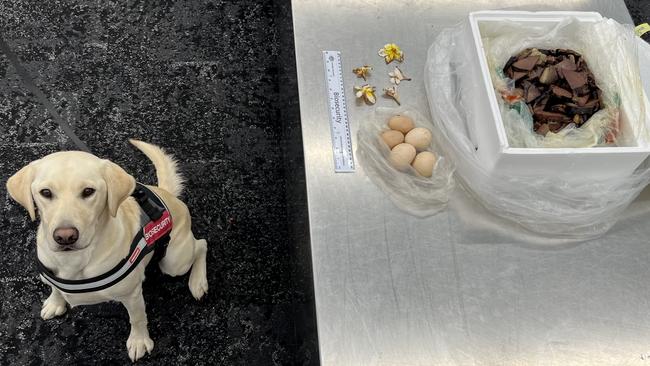
SA News
Don't miss out on the headlines from SA News. Followed categories will be added to My News.
An international student attempting to smuggle questionable items into South Australia was no match for one quick thinking Labrador, authorities say.
Earlier this week, biosecurity detector dog Ghost was on duty with his handler Rebecca at the baggage claim section of Adelaide Airport when he sniffed out illegal items in the luggage of an incoming international student.
The Department of Agriculture, Fisheries and Forestry said when the student was referred for additional screening, biosecurity officers discovered 2.7kg of cooked meat, suspected to be pork, 301g of cooked egg as well as six fresh frangipani flowers in their bags.
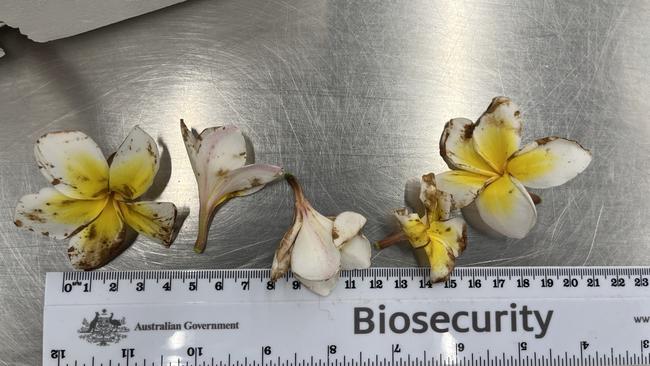
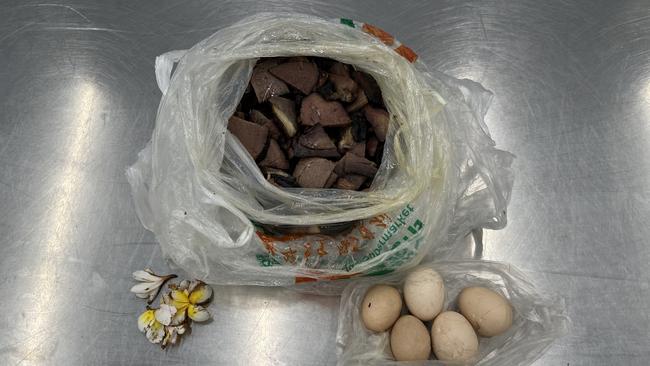
None of the items had been declared on the student’s Incoming Passenger Card, and Australian Border Force officers upheld a decision to cancel the student’s visa.
The student was also issued with a $3,756 infringement notice.
Biosecurity and Compliance Deputy Secretary Tina Hutchinson said it’s important that all travellers coming into Australia declare food, animal and plant products upon arrival.
“Commercial international flights arriving in Australia provide our incoming passenger biosecurity information, which clearly outlines what’s prohibited – including food and animal and plant products,” Ms Hutchison said.
“Our best advice is if in doubt, leave it out when you’re packing.”
She said for passengers already on their way, it’s best to declare the items truthfully on an Incoming Passenger Card and biosecurity officers will assess the goods.
“You will not be penalised under the Biosecurity Act 2015 if you declare and present all goods, even if they are not allowed into Australia.”
She praised 2.5-year-old Ghost for his efforts in stopping nearly 400 biosecurity risk items since graduating from training in November 2022.
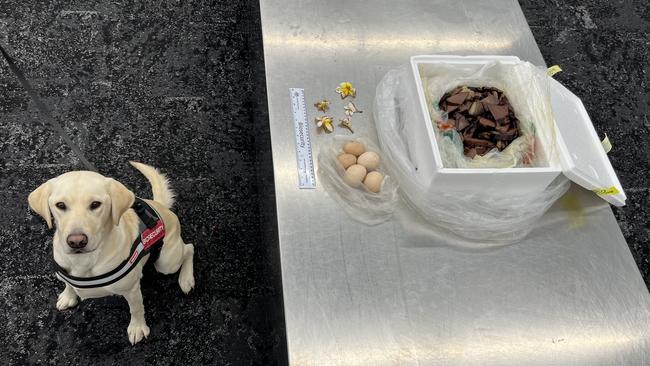
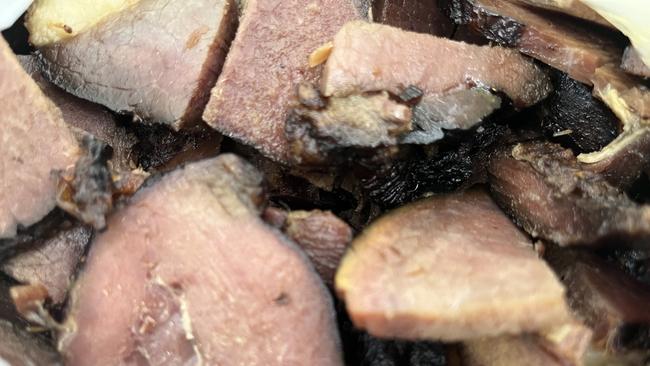
“Ghost is one of the dogs funded through an $11.7 million investment in our detector dog program in 2022-23,” she said.
In his first year of service, Ghost intercepted 194 travellers and mail articles entering Australia, which lead to 381 biosecurity risk item seizures including 111 animal products, 104 fruit products and 66 other items.





